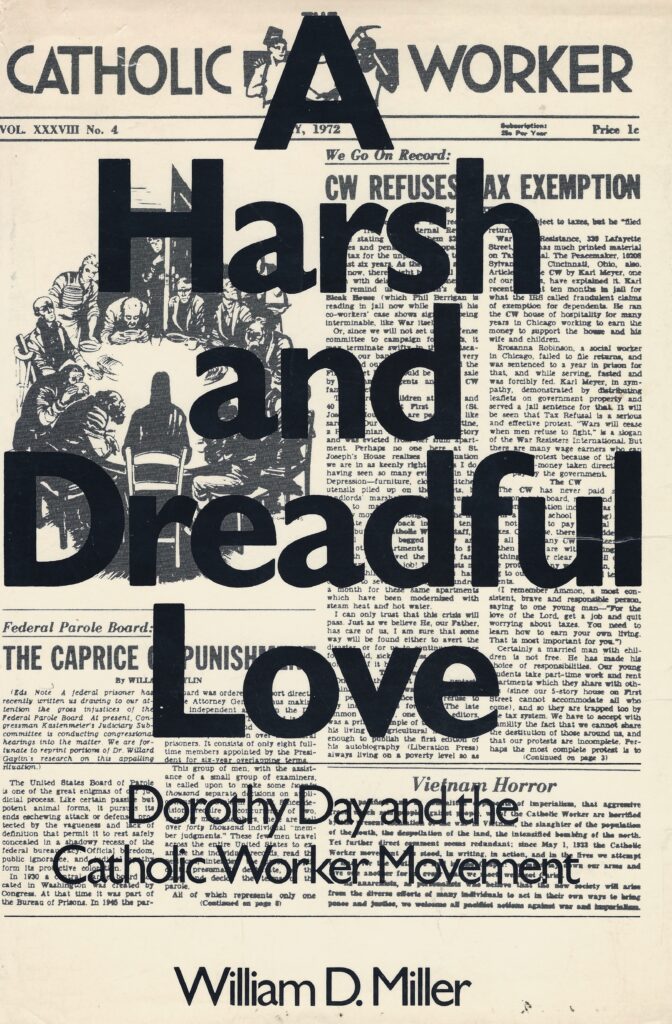William D Miller, A Harsh and Dreadful Love: Dorothy Day and the Catholic Worker Movement
After reading and discussing The Brothers Karamazov with 12 friends in 2021, I finally read William Miller’s 1973 history of the Catholic Worker Movement. The title of the book is a reference to Dostoevsky’s novel. The following four excerpts are plenty for me to contemplate and assimilate…
An Easy Essay by co-founder Peter Maurin, What Makes Man Human—
1. To give and not to take
that is what makes man human.
2. To serve and not to rule
that is what makes man human.
3. To help and not to crush
that is what makes man human.
4. To nourish and not to devour
that is what makes man human.
5. And if need be
to die and not to live
that is what makes man human.
6. Ideals and not deals
that is what makes man human.
7. Creed and not greed
that is what makes man human
Second, Dorothy Day’s oft-quoted passage by Zosima from Book 2 of the Karamazov novel—“I am sorry I can say nothing more consoling to you, for love in action is a harsh and dreadful thing compared with love in dreams. Love in dreams is greedy for immediate action, rapidly performed and in the sight of all. Men will even give their lives if only the ordeal does not last long but is soon over, with all looking on and applauding as though on the stage. But active love is labour and fortitude, and for some people too, perhaps, a complete science. But I predict that just when you see with horror that in spite of all your efforts you are getting farther from your goal instead of nearer to it- at that very moment I predict that you will reach it and behold clearly the miraculous power of the Lord who has been all the time loving and mysteriously guiding you.”
Next, Dorothy’s description of Peter, which Miller cites from her autobiography, The Long Loneliness— “Peter made you feel a sense of his mission as soon as you met him. He did not begin by tearing down, or by painting so intense a picture of misery and injustice that you burned to change the world. Instead, he aroused in you a sense of your own capacities for work, for accomplishment. He made you feel that you and all men had great and generous hearts with which to love God. If you once recognized this fact in yourself you would expect and find it in others. ‘The art of human contacts,’ Peter called it happily. But it was seeing Christ in others, loving the Christ you saw in others. Greater than this, it was having faith in the Christ in others without being able to see Him. Blessed is he that believes without seeing.”
Last, a famous (or infamous, to the liberal crowd) core conviction of Dorothy’s— “If the Chancery ordered me to stop publishing The Catholic Worker tomorrow, I would.”
